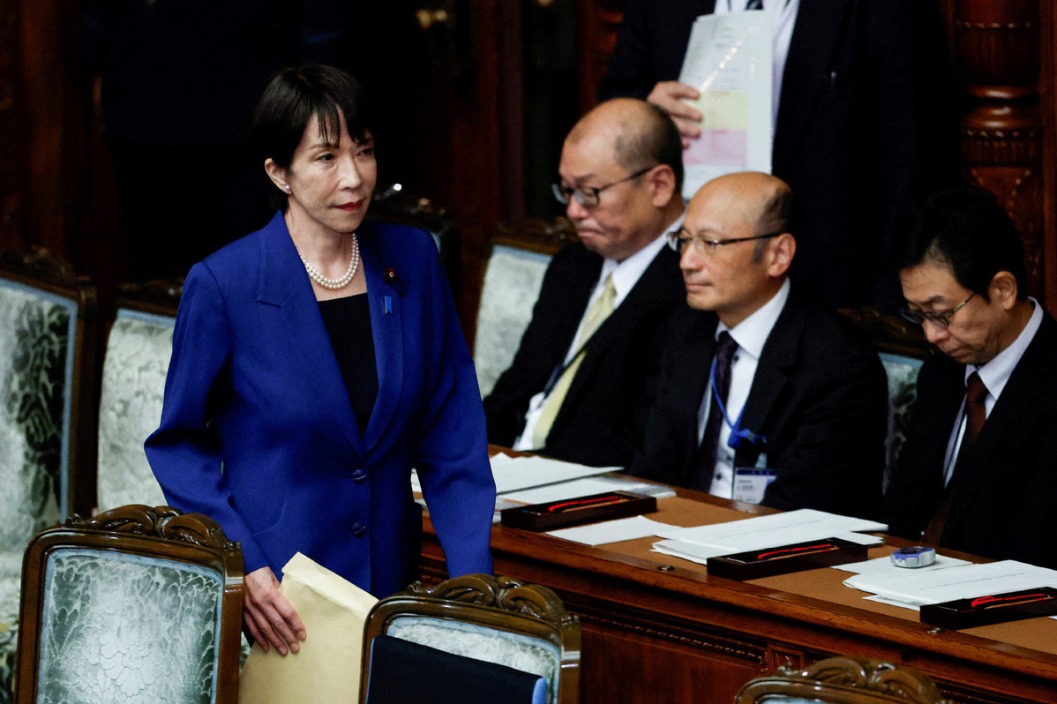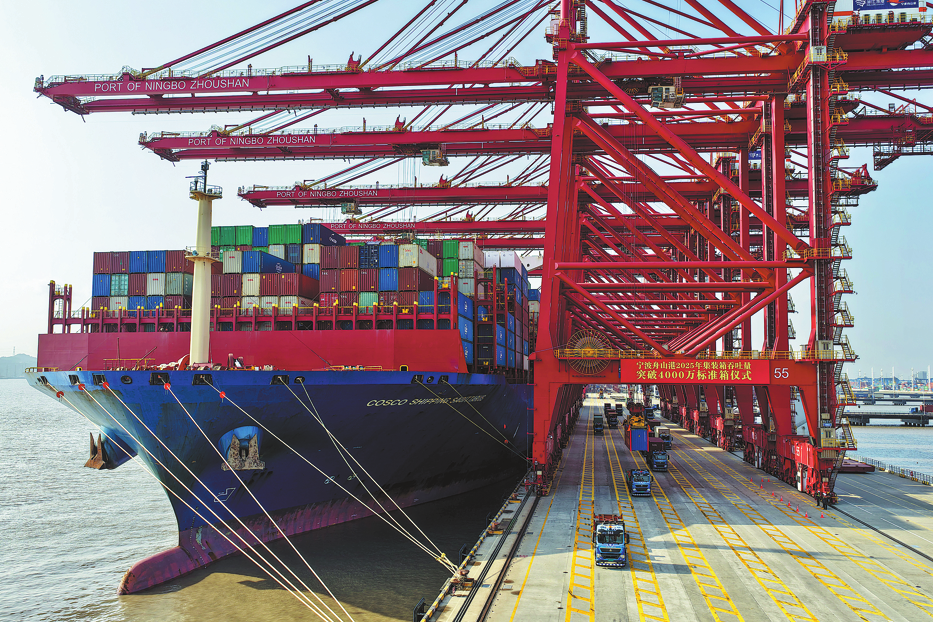Instrumental transformers


WANG XIAOYING/CHINA DAILY
Digital technology and education can be catalysts for realizing a China-Africa community with a shared future
African countries that are developing rapidly can borrow China's experiences from its recent decades of change. Through government-led initiatives, market reforms and technological developments, China has evolved from an agricultural culture to a global economic powerhouse. Education and technology have been vital for this transformation.
The Chinese government's support of science, technology, engineering and mathematics (STEM) education has produced a quality workforce able to industrialize the nation. Thanks to China's investments in digital infrastructure, its digital economy has expanded quickly. Alibaba, Tencent and Huawei now dominate worldwide e-commerce and telecommunications, and China is one of the countries at the forefront of artificial intelligence. With its quickly expanding economy, Africa might emulate China's educational and digital technology successes. African countries can overcome technological, educational and infrastructure problems by applying China's modernizing knowledge. Digital technology and education are keys to the timing.
But Africa is struggling to give every one of its citizens appropriate education. While there has been an increase in enrollment, many African nations still have packed classrooms, inadequate teaching resources, and a dearth of qualified teachers. China's educational reform offers Africa referential experiences. Early in its modernizing drive, China made investments in STEM education in order to provide workers for its industrial ambitions. Among the best in the world, Chinese universities produce graduates who propel economic and technical progress.
China offers promise to the improvement of education in Africa via the Forum on China-Africa Cooperation. Among the support offerings are scholarships for African students studying in China, Confucius Institutes throughout Africa to promote cultural and educational interaction, and alliances with African colleges to enhance courses and research. These initiatives advance knowledge and skills to propel Africa's industrialization and economic development. Furthermore, making African education more inclusive and easily available is digital technology. Digital libraries, mobile apps and online learning systems can provide underprivileged or remote students with high-quality instruction. Customized training, interactive materials, and real-time feedback made possible by digital tools help to improve teaching and learning.
For both China and Africa, cooperation in digital technologies and education presents various opportunities. One important issue is job creation. As African nations improve their digital infrastructure, knowledge of information technology, engineering and data science will be highly in demand. China's assistance in providing digital skills training and other technological training will enable African employees to be ready for their future employment. Entrepreneurship and innovation are another possibility. Thanks to the digital revolution, startups are easier to launch. China's IT sector expansion could teach Africa how to establish its own innovation hubs. Working with Chinese IT companies and investors, African entrepreneurs may grow their businesses and compete internationally.
Digital technologies and educational initiatives are also helping China and Africa to achieve the sustainable goals of quality education and decent work that are required to lower poverty and inequality. By working together, China and Africa can help the world advance toward a fairer and more sustainable future.
Although there are many advantages, China-Africa cooperation also faces challenges. One of the main concerns is over-reliance on Chinese companies, therefore hindering their own technological growth.
To address this issue, African nations should pay attention to local capacity building and technology transfer in their cooperation with Chinese companies. By developing local talents and inventiveness, African countries may better foster their self-reliance capability on their development path. Another problem is the digital divide among African nations. While digital technologies are helping metropolitan cities, rural and far-off places are sometimes being left behind. This digital divide compromises education, healthcare and economic development. To share the advantages of digital technology, African countries should enhance their coordination with China in order to increase internet infrastructure in underprivileged areas and encourage digital literacy for all.
As China's centralized government and State-led development might not be appropriate for every African state, African leaders will have to carefully consider the consequences of including elements of the Chinese development model and modify them for their own circumstances as required.
Notwithstanding the challenges, the cooperation between China and Africa on digital technologies and education has made great progress. Expansion of continental digital infrastructure is among the main ones. By building data centers, smart cities, and telecom networks, Chinese companies have helped pioneer Africa's digital revolution. China has sponsored scholarships, trade initiatives and research projects for thousands of Africans. While developing the skills and knowledge required to industrialize Africa, these initiatives have enhanced understanding and cooperation between the two sides.
The cooperation between the two sides has also generated creative ideas to meet Africa's most recent challenges. Chinese companies supported African governments in developing remote learning, telemedicine and contact tracing tools during the COVID-19 pandemic. These initiatives demonstrate how digital technology can improve African public services and resilience.
Effective cooperation between the two sides depends on mutual respect, common benefits and long-term sustainability. China and Africa should continue to work together to emphasize environmental sustainability, and share the advantages of their partnership.
Future China-Africa cooperation has great potential to enhance digital infrastructure in underprivileged communities, digital literacy and skills, and creativity and entrepreneurship.
Chinese and African cooperation in digital technologies and education can let both areas flourish in a fast-changing environment. By building on their achievements, tackling their problems, and learning from their past, China and Africa may establish a high-level China-Africa community with a shared future. Millions of lives could be improved, and a fairer, more prosperous, and sustainable planet could be created by their collaboration.
The author is a PhD student of comparative education at the College of Teachers Education at Zhejiang Normal University. The author contributed this article to China Watch, a think tank powered by China Daily. The views do not necessarily reflect those of China Daily.
Contact the editor at editor@chinawatch.cn.


































